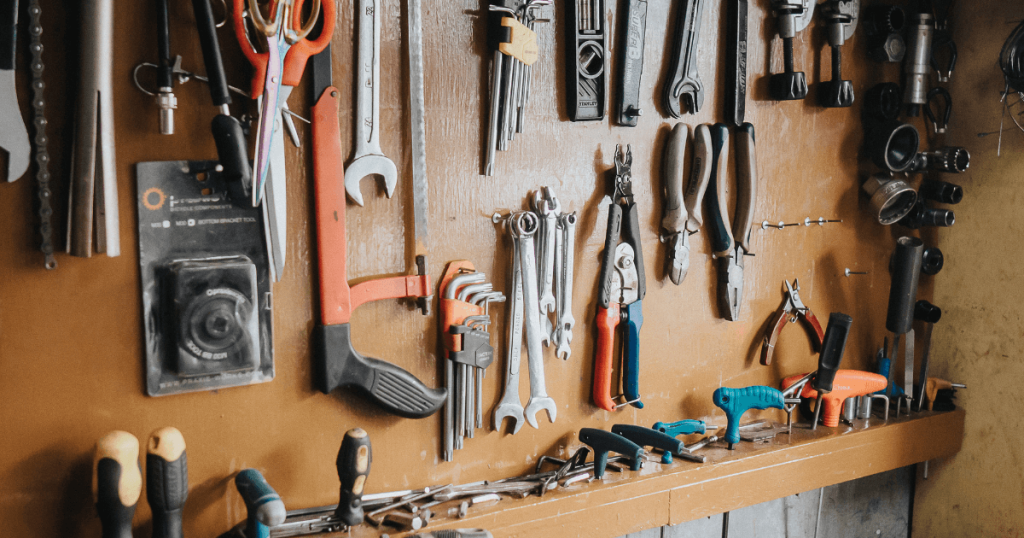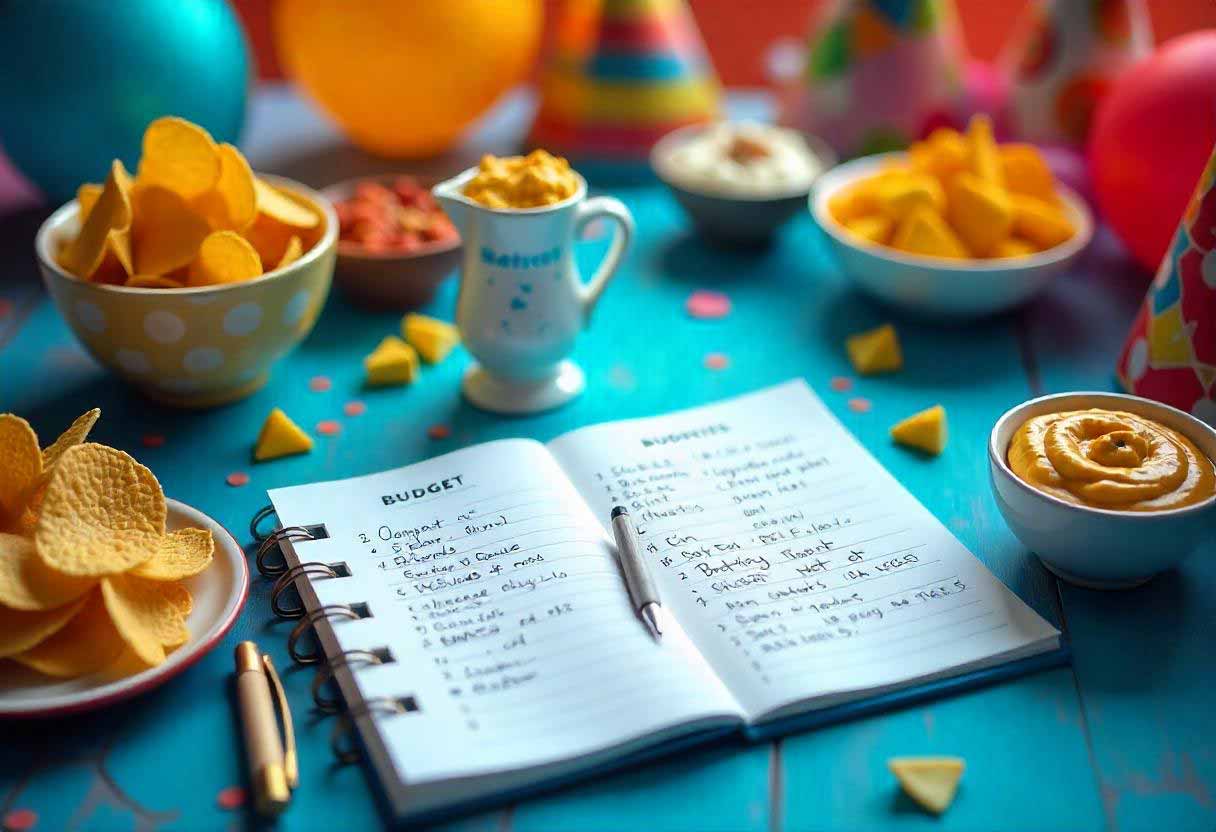In a world filled with endless entertainment options, creating your own custom games is an exciting and unique way to inject creativity into any event or leisure activity. Whether you’re hosting a party, looking for a new hobby, or simply exploring new avenues of creativity, designing your own games provides the perfect opportunity to showcase your personal style and make experiences more memorable.
Imagine a game where you control the rules, the theme, and the mechanics. How cool is that? By designing custom games, you can tailor every element to suit your preferences, interests, or the needs of your audience. The world of custom game creation opens up a world of possibilities—from board games to video games and everything in between. It’s about taking something you love and transforming it into an experience that is uniquely yours.
This post is your guide to creating custom games—from conceptualizing ideas to implementing game mechanics. By the end of it, you’ll be equipped with the tools, inspiration, and insight you need to start crafting your own games and turning your ideas into reality.
Custom Games: Why They Are the Future of Entertainment
Custom games are revolutionizing the entertainment industry. Why? Because they offer a personal touch that mass-market games can’t replicate. With custom games, you are no longer just a player—you become the creator, and the games can reflect your unique personality and preferences. This level of personalization is something that consumers crave more than ever.
For example, imagine designing a game for your family’s annual reunion. Instead of using off-the-shelf games that everyone has already played a hundred times, you can create a game that incorporates inside jokes, family history, and custom rules that reflect your family’s dynamic. That’s the power of custom games: the ability to make entertainment truly your own.
With advancements in game development tools and platforms, making custom games has never been easier. Platforms like Tabletopia for board games or Roblox for video games are helping creative minds bring their game ideas to life without needing to be a tech expert. The rise of personalized experiences in entertainment, combined with the accessibility of these tools, has made custom games more popular than ever.

Customizing Your Game: Essential Tips and Tools
When it comes to creating custom games, having the right tools and understanding the best practices is key to success. Whether you’re designing a card game, a board game, or a video game, the process requires a mix of creativity and strategic thinking.
To start, think about the basic structure of your game. What are the core mechanics? What makes your game unique? For example, if you’re designing a board game, think about the gameplay, the challenge level, and how players interact with each other. Tools like Game Crafter are perfect for turning your card or board game ideas into real prototypes.
For video game creation, software like Unity or Unreal Engine can help you bring your ideas to life. They offer powerful tools for designing game environments, mechanics, and interactions, even if you have no prior coding experience. You can easily find tutorials online that will guide you through the process of designing your game world and implementing your ideas.

Types of Custom Games You Can Create
Creating custom games is a broad field that spans many different genres and formats. Whether you are into tabletop games, digital games, or live-action games, the possibilities are virtually endless. Below are some types of custom games that you can create:
- Board Games 🧩: Design your own rules, game pieces, and boards. Perfect for friends or family game night.
- Card Games 🃏: Create custom card decks with unique game mechanics for a personalized experience.
- Video Games 🎮: From 2D side-scrollers to immersive 3D worlds, design a digital game that suits your vision.
- Party Games 🎉: Create games designed for large groups, ideal for birthdays, family gatherings, or corporate events.
- escape room Games 🔐: Design your own puzzle-filled escape room to challenge your friends or clients.
- Interactive Story Games 📖: Tell a story through your game where the players’ choices shape the narrative.
- Trivia Games 🧠: Build a trivia game on any topic—from pop culture to history, you’re in charge.
- Mobile Games 📱: Create games for mobile platforms that friends or strangers can play on the go.
- Online Multiplayer Games 🕹️: Design a game that can be played by multiple users online, creating an immersive shared experience.
- Live Action Role-Playing Games (LARP) 🎭: Create custom scenarios and characters for a live-action game where players act out their roles.
Designing custom games in any of these categories is not only a fun project but also a way to engage with friends, family, or an online community in a unique way.

How to Design Engaging Custom Board Games
Board games are a classic favorite for many, and designing your own board game can be a thrilling challenge. The key to making a board game engaging is to ensure it is fun, challenging, and interactive. Start by deciding the genre or theme of your game—will it be a strategy game, a trivia game, or a fast-paced competitive game? Once you have a theme, the rest will fall into place.
A great example of a custom board game is Settlers of Catan, which started as a small, homemade project and grew into one of the most successful games in the world. Look at the gameplay mechanics—resource management, trading, and building—and think about how you can adapt these principles to your own game.
When designing your game, it’s also important to consider how to balance fun and challenge. Test your game with friends or family, and make adjustments based on their feedback. Use free online tools like Board Game Designer to help visualize and print your game components.

Creating Custom Video Games: A Step-by-Step Guide
If you’re inclined towards digital game creation, the possibilities for custom video games are vast. Thanks to platforms like Unity and Roblox Studio, creating a custom video game is now accessible to people with no professional game design background.
The first step is to choose the right platform for your game. Unity, for example, is ideal for those wanting to create 2D and 3D games with complex mechanics. If you’re looking for something simpler, Roblox Studio lets you build games in a user-friendly interface.
Once you’ve chosen your platform, sketch out the basic structure of your game. What’s the story? What are the core mechanics? Do you want players to compete or collaborate? These questions help form the backbone of your game.
After planning, begin building your game. You don’t need to do it all at once; break it down into smaller steps like creating the environment, coding interactions, and refining the player experience. Once your game is in playable form, test it. Have friends play it and provide feedback so you can make improvements.

Incorporating Themes and Storylines into Your Custom Games
A captivating storyline and a strong theme are essential to creating a memorable game. Whether you’re designing a board game, card game, or video game, the theme sets the tone and guides the player’s experience.
Start by choosing a theme that excites you and suits your gameplay style. Are you going for a medieval fantasy adventure, a space exploration journey, or a mystery thriller? Once you have your theme, craft a compelling storyline that complements it. The storyline should draw players in, make them care about the characters or objectives, and keep them engaged throughout the game.
For example, in Dungeons & Dragons, the world-building, characters, and evolving storylines have made it one of the most popular tabletop RPGs. You can apply similar principles by developing rich characters, intricate plots, and exciting twists that will keep players hooked.

Best Platforms and Tools for Creating Custom Games
When it comes to creating custom games, having the right tools can make all the difference. Whether you’re a beginner or a seasoned creator, there are several platforms that can help bring your ideas to life. These tools vary in complexity, with some offering drag-and-drop functionality, while others provide more advanced coding and game development options.
1. Tabletopia – Perfect for board game designers, Tabletopia allows you to create, test, and share your board games online. It’s an ideal tool for those looking to design traditional-style games with custom pieces and rules.
2. Unity – If you’re creating a video game, Unity is one of the most powerful platforms available. It’s used by both indie developers and large studios, offering robust support for both 2D and 3D game development. Unity’s Asset Store provides pre-built assets to help speed up development.
3. Roblox Studio – For beginners, Roblox Studio is a fantastic platform that lets you create games without needing to be a coding expert. It’s also a great option for multiplayer games, allowing you to design and share your game with a community of players.
4. PICO-8 – For those who want to develop simple, retro-style video games, PICO-8 is a fun tool. It’s a fantasy console that lets you create pixel art games and share them easily with others.
5. GameMaker Studio 2 – If you’re interested in making 2D games, GameMaker Studio 2 provides an easy-to-use interface while offering the flexibility of custom scripting. It’s ideal for creating both simple and complex games.
Each of these platforms has unique features, and your choice should depend on the type of game you want to create and your level of experience. For beginners, drag-and-drop tools like Tabletopia and Roblox Studio are great starting points, while Unity and GameMaker Studio offer more customization and professional-grade capabilities.

Custom Games for Parties: Fun Ideas for Any Event
Custom games are an excellent way to liven up any party or event, offering a unique twist that pre-made games simply can’t provide. Whether you’re hosting a birthday party, a family reunion, or a corporate gathering, custom games allow you to tailor the experience to your guests, making it more fun and memorable.
Here are some fantastic ideas for custom games you can create for parties:
- Personalized Trivia Game 🧠: Customize trivia questions based on the guest of honor or the theme of the event. For example, if it’s a birthday party, ask questions about the guest’s childhood or funny experiences with friends and family.
- Scavenger Hunt 🕵️♀️: Create a themed scavenger hunt, where clues are tailored to the location and your guest’s interests. You could have one at the office with work-related riddles or a family reunion with nostalgic references.
- Charades with a Twist 🎭: Use personal stories or inside jokes to create a charades game that’s guaranteed to make everyone laugh.
- Themed Murder Mystery 🕵️♂️: A murder mystery game can be personalized with characters based on your guests, making the experience more immersive. Set up a storyline that fits your party theme, whether it’s a glamorous Hollywood setting or a spooky haunted house.
- Custom Pictionary ✍️: Customize the words or phrases for the Pictionary game based on the event’s theme or people involved. For example, a wedding-themed Pictionary can feature wedding-related words like “honeymoon,” “bride,” or “cake.”
- Human Bingo 🏆: Create a bingo card with fun facts about the guests and have everyone fill out the cards by finding people who match those descriptions.
- Personalized Obstacle Course 🏁: If your event is outdoors, consider setting up a custom obstacle course with challenges that fit your party theme.
- Custom Spin the Bottle 💋: Make this classic game fun by adding dares or challenges specific to your group, making the experience more personal and engaging.
- Party Memory Game 🧩: Create a memory game featuring pictures of the guests or memorable moments from past events.
- Pin the Tail on the Donkey (With a Twist) 🐴: Personalize this game by replacing the donkey with a funny or themed character, or create your own version of “Pin the Tail” based on your event theme.
Custom games for parties can turn an ordinary gathering into an unforgettable experience. They help guests bond, create laughter, and add a unique touch to your event that is bound to stand out.

Personalized Game Mechanics: How to Make Your Game Unique
The mechanics of a game are what make it tick. These are the rules and systems that drive the gameplay, making it engaging, exciting, and challenging. If you want to make your custom game stand out, personalized game mechanics are key. Here’s how you can infuse your own unique touch into your game’s mechanics.
- Create Unique Objectives 🏆: Instead of the usual “win by defeating everyone,” give players a different goal—perhaps they have to work together to solve puzzles, gather resources, or uncover secrets. For example, in a mystery board game, the players could win by collaborating to discover the culprit instead of competing against each other.
- Add Dynamic Difficulty 🎮: Game mechanics like scaling difficulty—where the game gets harder as players progress—can make the game feel more rewarding. You can adjust the rules or introduce new challenges to keep the game fresh and exciting as players advance.
- Introduce Special Abilities ✨: Think about adding unique powers to players that can change the course of the game. For example, in a custom card game, certain cards could allow players to steal or swap items, or in a board game, certain spaces on the board could give players an advantage.
- Multiple Endings 🎭: Instead of having one way to win, offer multiple possible outcomes based on players’ decisions. This adds replayability, allowing your game to be played again and again with different results.
- Random Elements 🎲: Incorporating random events or elements, like dice rolls or card draws, adds excitement and unpredictability to the game. These elements can force players to adapt, adding depth and strategy to the experience.
- Player Interactions 🤝: Allow players to form alliances, negotiate, or even deceive one another. For example, in a card game, certain cards could require players to choose between helping another player or sabotaging them for their own benefit.
- Time-Based Challenges ⏰: Introduce time constraints that require players to act quickly. This can create tension and excitement, especially in competitive games or trivia.
- Resource Management 💰: Add a layer of strategy by incorporating resources that players need to manage carefully, such as money, tokens, or health. This forces players to think critically about how they use their resources to win.
By tweaking these game mechanics and adding your personal flair, you can create a truly one-of-a-kind game that keeps players engaged and excited.

How Custom Games Can Improve Social Interactions
One of the most exciting benefits of creating custom games is how they can enhance social interactions. Whether you’re creating games for friends, family, or coworkers, a well-designed custom game has the power to foster deeper connections, spark conversations, and break the ice in any social setting.
1. Building Teamwork and Collaboration 🤝: Games that require players to work together—such as cooperative board games or team-based video games—encourage collaboration and problem-solving. This can strengthen bonds between people, whether they’re family members or colleagues.
2. Promoting Communication 🗣️: Many custom games involve sharing information, making decisions, and negotiating with other players. This can lead to improved communication skills and stronger relationships, as players learn how to interact with others in a fun and supportive environment.
3. Breaking the Ice 🧊: At a party or gathering, custom games are a great way to break the ice. When people are hesitant to speak with strangers, a game that involves everyone encourages conversations and shared experiences. This helps create a comfortable atmosphere, particularly at events like reunions, team-building activities, or icebreaker events.
4. Encouraging Healthy Competition 🏅: Healthy competition is a great way to bond with others. Custom games that have a friendly competitive aspect—like trivia or card games—can bring out a sense of camaraderie and mutual respect as players engage in fun, low-stakes rivalry.
5. Sparking Creativity 🎨: Games that require creative thinking or problem-solving can stimulate the mind and lead to unexpected ideas. When you’re forced to think outside the box, not only do you learn something new about your friends or coworkers, but you also grow as a team.
By designing games that promote these social interactions, you’re setting the stage for stronger connections, more meaningful conversations, and a deeper sense of community among players.

Custom Card Games: How to Get Started
Custom card games offer endless possibilities for personalization, allowing you to design everything from the artwork to the rules. Creating your own card game not only lets you explore creativity but also adds a special touch to any gathering or event. Whether you’re designing a game for a party, a family reunion, or just for fun, here’s how to get started.
1. Understand the Basics of Card Games 🃏: Before diving into creating your custom game, it’s important to familiarize yourself with the basic mechanics of card games. Start by looking at popular games like UNO, Poker, or Magic: The Gathering for inspiration. Understand how these games use card types, values, and unique mechanics.
2. Choose Your Theme and Story 🎨: The theme of your game is crucial as it sets the mood and the rules of play. Whether it’s fantasy, historical, or futuristic, your theme will dictate the artwork, the card categories, and even the game’s goals. For example, in a fantasy-themed card game, you could create cards for different characters or magical powers.
3. Design the Card Deck 🃏: Decide how many cards your deck will have and the structure of the cards. Typically, card games include different categories such as action cards, character cards, and resource cards. You can make your deck as simple or complex as you like. Use online tools like The Game Crafter to create your card templates and design your artwork.
4. Define the Rules 📜: Clear and simple rules are essential for a fun and playable game. Define how players will take turns, win points, and interact with other players. Think about how you can make the game competitive, engaging, and balanced. Don’t forget to test the rules with friends or family to make sure it’s enjoyable and easy to follow.
5. Prototype and Test 🧪: Once your cards and rules are designed, create a prototype and test the game. Try different variations and gather feedback from players to fine-tune the gameplay. Once you’re happy with the results, consider printing the cards and finalizing your game design.
Creating custom card games is an excellent way to express your creativity while providing entertainment for friends and family. With just a few basic tools, you can bring your ideas to life and create a fun game that everyone will enjoy.

Custom Games for Family Fun: What You Need to Know
When it comes to family gatherings, custom games are the perfect way to get everyone involved and create lasting memories. The beauty of custom games for families is that they can be tailored to all ages and interests, ensuring everyone has fun. Here’s what you need to know when designing family-friendly custom games.
1. Know Your Family Dynamics 👨👩👧👦: Understanding the interests and age groups of your family members is key. For example, younger children may enjoy simpler, colorful games with easy-to-understand rules, while older family members may enjoy strategic games with more complex mechanics. Customizing your game to fit these dynamics ensures that everyone is engaged.
2. Make It Inclusive 🌍: Family games should bring everyone together, so try to design games where players of all ages can participate. If your family includes toddlers, teenagers, and grandparents, think about a game that can be adapted to different skill levels or offer team-based play, where players of varying abilities can work together.
3. Add Personal Touches ✨: Incorporate family memories, inside jokes, and shared experiences into the game. For instance, in a trivia game, you could include questions about family history, favorite shared vacations, or fun facts about each family member. Personalizing a game makes it even more special and meaningful.
4. Consider Game Length ⏳: Keep in mind that family gatherings often involve a mix of activities, so make sure your game isn’t too long. Aim for a game duration that keeps everyone interested but leaves room for other fun activities or meals. Short and sweet games can often leave a better impression than long, drawn-out ones.
5. Keep It Light-Hearted 😂: The goal of family games is to have fun and bond, so don’t stress too much about making the game overly competitive or serious. Consider adding humor, fun challenges, or silly dares that will get everyone laughing and creating joyful memories together.
With these tips in mind, you can create a custom game that fits the vibe of your family and ensures everyone has a blast. Whether it’s a memory game, a scavenger hunt, or a family trivia quiz, custom games are an unforgettable way to enhance your family fun.

Creative Game Ideas for Kids: Unleashing Their Potential
When designing custom games for kids, the sky’s the limit! These games can stimulate creativity, build problem-solving skills, and encourage teamwork. Whether for a birthday party or just a fun afternoon, here are some creative ideas that will keep kids entertained and engaged.
1. DIY Puzzle Hunts 🧩: Create a scavenger hunt where kids solve puzzles or follow clues to find a hidden treasure. You can make the puzzles as simple or complex as needed, using pictures or riddles that match the kids’ age group.
2. Superhero Adventure Game 🦸♂️: Let kids create their own superhero identities, complete with powers and backstories. Have them go on a mission together, overcoming challenges and working as a team to achieve their goals. This promotes imagination and teamwork.
3. DIY Obstacle Course 🏃♀️: Build a simple obstacle course using household items like cushions, chairs, and ropes. Kids can race through the course, collecting points or completing tasks along the way. It’s a great way to get them moving while having fun.
4. Build Your Own Story 📖: Create a custom game where kids build a story together. Each child contributes to the narrative, adding their characters, settings, and plot twists. This type of game helps develop storytelling and collaboration skills.
5. Nature Exploration Game 🌳: If you’re outside, create a nature-themed scavenger hunt where kids have to find specific plants, animals, or objects. This encourages them to explore and learn about the environment around them.
6. Mystery Solving Game 🔍: Let kids solve a mystery by following clues, interviewing “witnesses” (adults or other kids), and putting together the pieces of the puzzle. This game builds critical thinking and problem-solving skills in a fun way.
7. Craft Your Own Board Game 🎲: Encourage kids to design their own board games, complete with dice, cards, and pieces. This process fosters creativity and teamwork while giving kids a sense of accomplishment when they play their own creations.
8. Custom Team Sports 🏀: Create your own team sports with unique rules. For example, a mix of soccer and basketball could turn into a fun, new game where kids have to score goals in both baskets and goals on the field.
9. Memory Games with a Twist 🧠: Create a memory matching game, but instead of just cards, use photos of the kids and their favorite things. This adds a personal touch that makes the game more fun.
10. Creative Art Challenges 🎨: For a quieter activity, create a game where kids take turns adding elements to a collaborative drawing or sculpture. This sparks creativity and encourages teamwork.
Custom games for kids not only offer fun but also help with skill development. These games are an excellent way to spark imagination, enhance learning, and encourage positive social interactions.

What Makes Custom Games So Popular? My Personal Experience
In my experience, custom games are so popular because they tap into a universal desire for personal connection and creativity. When you design a game, you’re not just following a pre-made script; you’re creating something that is entirely your own, and that’s powerful.
I remember the first time I created a custom game for a family reunion. I included trivia questions about our shared memories and inside jokes, and it was a hit! Everyone loved it, not just because it was a game, but because it felt personal. That’s the beauty of custom games—they allow you to engage people in ways that pre-made games can’t. You can make them as funny, challenging, or lighthearted as you want. It’s an experience that can’t be replicated with a mass-market product.

The Future of Custom Games: Trends and Predictions
As the gaming industry continues to evolve, custom games are becoming more popular and accessible than ever. The rise of new technologies like augmented reality (AR) and virtual reality (VR) is opening up new possibilities for custom games. Here’s a look at some of the trends shaping the future of custom games.
1. Virtual Reality Integration 🕶️: VR is revolutionizing gaming by offering an immersive experience. Custom games will increasingly incorporate VR to give players a fully interactive and personalized world to explore. Imagine creating a custom escape room game where players interact with their surroundings in real time.
2. AI-Powered Game Mechanics 🤖: With the development of artificial intelligence, custom games will soon be able to learn from players’ actions and adjust the gameplay to suit individual styles and preferences. This could lead to an entirely new level of personalization in gaming.
3. Mobile Custom Games 📱: With smartphones being an integral part of everyday life, mobile custom games will continue to grow. Whether it’s for parties, education, or casual play, mobile games that can be customized will cater to a wide range of audiences.
4. Social and Collaborative Gaming 🌍: Games that focus on social interaction and teamwork are becoming more popular. Custom games designed for group play—whether online or offline—will foster collaboration and community building.
The future of custom games is bright, with new technologies and trends enhancing the possibilities for game creators. Whether you’re designing your own game for fun, learning, or social interaction, the future holds exciting prospects for custom game development.

Key Takeaways for Crafting the Perfect Custom Game
Creating the perfect custom game requires a balance of creativity, fun, and practicality. To recap, here are the most important takeaways:
- Understand the Audience: Know who will be playing your game and tailor it to their interests and skill levels.
- Start with Simple Mechanics: Begin with a simple game structure, then add complexity as needed.
- Personalize: The magic of custom games lies in their ability to reflect personal experiences, memories, and interests.
- Test, Test, Test: Playtesting is crucial for fine-tuning your game mechanics and ensuring it’s enjoyable for everyone.
- Keep it Fun: The ultimate goal is to create an experience that brings people together, fosters communication, and sparks laughter.
Creating custom games is an incredibly rewarding process that allows you to unleash your creativity while connecting with others. So grab your tools, get started, and have fun designing your own unique game!
Explore the exciting world of custom game creation! Learn how to design card games, board games, and interactive experiences, with tips, ideas, and tools to make your games truly unique.










Leave a Reply